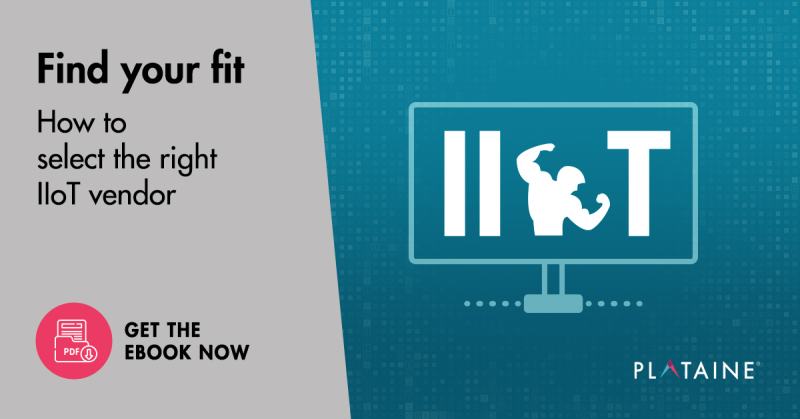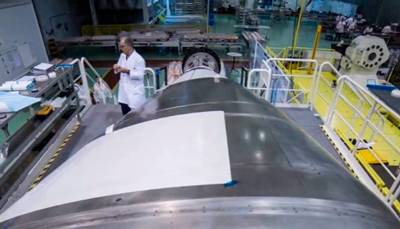Manufacturing is changing. A plethora of new technologies – AI, the Industrial Internet of Things (IIoT), and cloud computing, are bringing the possibility to completely transform the way factories operate. In the process, huge efficiency and quality benefits are being delivered.
The low costs associated with the cloud allow even a small manufacturing company to have access to highly sophisticated computing capabilities – putting the benefits of the IIoT , advanced optimization and AI tools within reach of all.
Cloud software solutions offer new paths to growth for manufacturers. The benefits of the cloud include lower IT costs, allowing teams (and even whole factories) to collaborate like never before; giving factories the chance to benefit from the Software as a Service (SaaS) business models that are becoming more popular every day; and delivering the remote deployment and remote working capabilities that have become so necessary in the COVID-19 era.
New paths to growth
The underlying driver of growth in digital manufacturing is the constant industry changes. New technologies are enabling manufacturers that adopt these changes, to deliver more products with greater speed, at higher quality, efficiency, and flexibility than ever before. Soon, their customers come to expect such service as the norm. Next, the knowledge of what is possible spreads about and, before you know it, the expectations of the whole market have moved up a notch.
One of the requirements for enabling the latest Industrial IoT capabilities is access to huge amounts of storage and computing power. Until relatively recently, the only way to do this was to install heavy-duty servers on premise – something that is quite expensive since it requires equipment, IT support and significant real estate. This was only an option for the largest companies. The cloud has changed all this.
Cloud computing has delivered affordable access to almost unlimited computing capacity, putting immense processing power within reach of almost all companies. This has stimulated IIoT providers (like Plataine) to develop high-end AI solutions that are capable of transforming and optimizing the operations of any manufacturing company. The early adopters are already embracing the IIoT– while the laggards will be pushed into it several years down the line by market forces.
I want to use the rest of this blog to explain the value that the cloud can bring to your factory.
1) The cloud enables collaboration
Improved collaboration capabilities are one of the leading benefits that the cloud can deliver. This should be of particular interest for manufacturing and engineering companies due to the highly globalised nature of these sectors.
Perhaps your company has numerous siloed teams who, despite working at the same site, don’t talk to each other nearly as much as they should? Perhaps you have multiple factory sites in different locations that would benefit from working closer together? Or perhaps your factory would benefit from working more closely with its suppliers? If any or all of these is true of your business (and I am willing to bet that at least one of them is!) then a cloud based IIoT solution would bring you immediate benefits.
The essential collaboration benefit that the cloud brings is the possibility to have a fully integrated digital working environment, that all your employees can access from any location and from any device. Such a working environment – if well designed – manages all elements of your workflow, allowing multiple users to share and simultaneously work on projects and programs. Such solutions are immensely powerful compared to the incompatible bespoke IT solutions that your different teams and factories are most likely working with right now.
2) The SaaS opportunity
One of the really interesting things about cloud solutions is how they are sold. The challenge of bringing cloud software to market has required the creation of new business models. These tend to be based on SaaS, which offers several benefits for end users:
Lower costs
For many companies considering implementing digital manufacturing and IIoT, especially smaller & medium size companies, the first concern is what it will cost. This is one area where cloud solutions come into their own because the Total Cost of Ownership (TCO) tends to be significantly lower than it would be for an on-premise software package. One reason for this is the lack of upfront CapEx costs for a cloud solution – there is no need to buy servers, or to pay outright for a software package. Instead, users pay a small, ongoing monthly fee in order to be able to rent access to both cloud computing capacity and to the software itself. This means the IIoT provider takes ongoing responsibility for ensuring that the necessary computing power is available, as well as for ensuring the software is regularly updated.
The flexibility of SaaS is particularly important for small and medium sized businesses, who can rent a package that is precisely tailored to the size of their company and the number of system users. Additionally, other peripheral cost savings are that there are no maintenance costs, and no need to hire IT staff to manage the system, as these issues are taken care of by the software provider.
Reliability and data security
With a cloud solution, worries about reliability or server downtime are a thing of the past. Unlike with most on-premise solutions, cloud solutions will be based on multiple data centres around the world, meaning there is a high degree of redundancy built into the system.
Cloud systems are also highly secure because the leading cloud providers (such as Amazon Web Services and Microsoft Azure) have large and highly-experienced in-house cybersecurity teams that are proficient in the most sophisticated encryption techniques. There is a perception in the market that having a server based on the cloud is somehow “less secure” than an on-premise server. This is incorrect. Essentially, any server connected to the internet (as almost all are) is equally vulnerable. The difference with an on-premise server is that most manufacturing firms would have few if any dedicated cybersecurity workers to look after it.
To learn more about data security in the IIoT, check out our handy guide.
Easy set-up
At any factory buying in a new system, set-up is always a worry – the big question for any change to an existing manufacturing process being “is the roll out process going to cause me production downtime?” Fortunately, when deploying a cloud-based IIoT solution, the answer to this is “no”. For an end-user of such a system, the set-up process may well be limited to just logging in. If there is a hardware requirement, it generally consists only of smart sensors and edge devices. Such hardware can be deployed by factory workers – operating under remote online guidance from external IIoT experts.
3) Manufacturing in the new normal
Related to this issue of easy set-up are issues surrounding manufacturing in the ‘new normal’. The need for social distancing in factories which has been caused by Covid-19 – and particularly the lack of clarity surrounding how long these measures will be in place – has compelled many manufacturers to bring forward their existing automation & digitalization plans.
Remote deployment
In fact, many cloud-based IIoT systems are easy to set up so that they can be deployed entirely remotely. Even here at Plataine, although we were selling cloud-based IIoT solutions for many years before Covid-19, we were glad to see how essential our remote and easy-to-deploy/ plug and play solution is today. This means that any manufacturing firm can choose to upgrade to a cloud solution today, with absolutely no concerns about breaking the local Covid-19 regulations where the factory concerned is located.
A recent example for Plataine has been at Alestis Aerospace. We recently rolled out our manufacturing optimization solution at their Brazilian manufacturing operation and successfully automated their production workflow, as well as optimizing their cut-planning processes. The result was significant time savings in the manufacturing process as well as improved material yield. Zero downtime was caused at the factory during roll-out, and – due to travel restrictions – not one Plataine member of staff set foot on the continent where the factory was located.
Remote working
Equally important for the new normal – as well as for the flexibility of your business in general – is the ability to enable remote working. The best IIoT solutions are hardware agnostic. Users each have their own dashboard, and this dashboard is accessible on any internet-enabled device: from smartphones to desktop PCs. This gives total flexibility for factory managers, particularly in companies with multiple production sites. It also means that the skills of your technical experts can be deployed across the world without having to physically fly those people to the location where their skills are required.
To learn more about the power of location-agnostic IIoT solutions, check out our Production Scheduler case study.
Cloud computing is more than just a technology – it’s a strategy
At the end of the day, the decision to take your factory onto the cloud is not just a technology decision: it’s a question of wider business strategy. As we (slowly) come out of Covid-19, many companies are still experiencing production volumes that are much lower than normal. So why not take the opportunity to start your digital transformation journey?
Plataine is the IIoT provider of choice for some of the largest OEMs and discrete manufacturers, as well as for some of the world’s most unusual niche companies. We have helped many companies to radically improve and automate their manufacturing processes.
To learn more, get in touch with your local Plataine Digital Transformation Specialist today.










